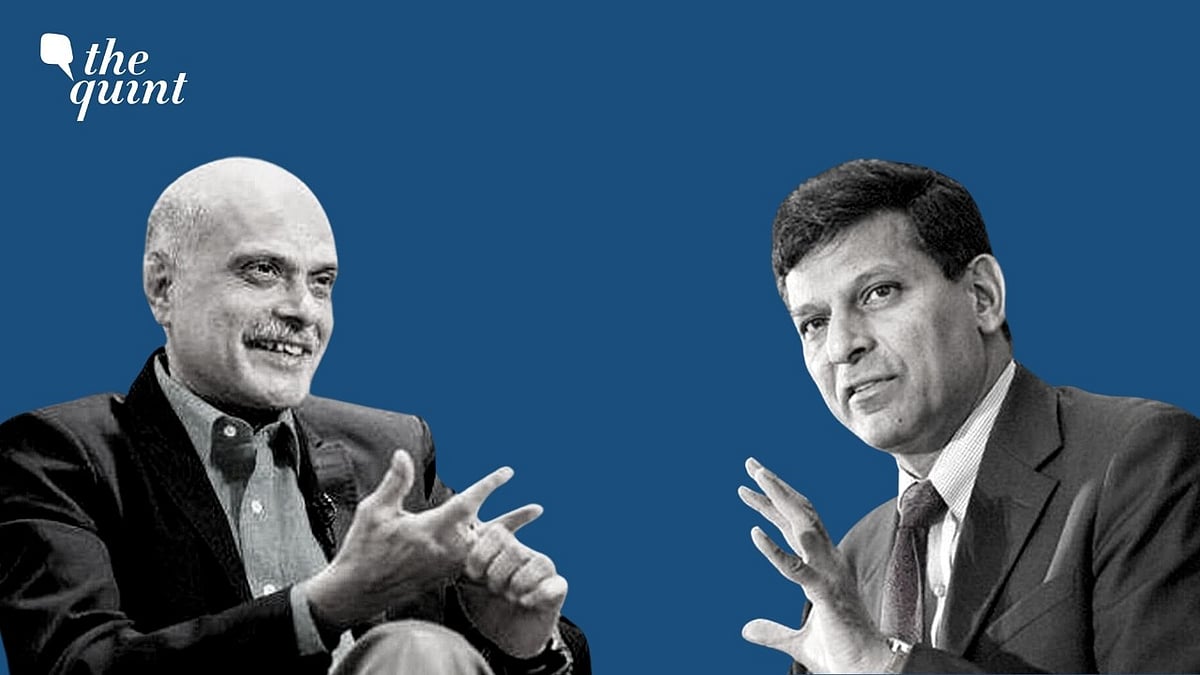‘Global Leadership Collapsed During COVID’: Raghuram Rajan Speaks to Raghav Bahl
The Quint's Editor-in-Chief spoke to Raghuram Rajan on vaccines, economy & education, among other things.

advertisement
The Quint's Editor-in-Chief Raghav Bahl spoke to Professor Raghuram Rajan, former governor of the Reserve Bank of India (RBI), on Tuesday, 17 August, on the developments in the political economy of India post the COVID-19 pandemic.
Among the things Rajan touched upon during the course of the discussion were the need for a much better global leadership during the pandemic.
Refering to the digital divide and the impact of the pandemic on students, he said that 'children cannot be left out of the education system due to a digital divide'.
On retrospective tax, to undo which the Parliament recently passed a Bill, he said the settling of such cases is the right move.
The discussion centred around the country's post-COVID revival, with focus on vaccines, economy, and governance.
COVID Vaccines & Vaccine Passports
On COVID-19 vaccination, Rajan said that the lack of vaccines remains the main problem facing many countries, adding that India and the world also have to worry about booster doses.
Overcoming vaccine hesitancy is a challenge even in developed countries, he further said.
He added that there should not be discrimination based on this and that there "is a total collapse of global leadership on this issue."
Formalisation of the Economy
In reference to the hit that the informal sector took because of the pandemic, the lockdown, and the loss of jobs, Rajan said that formalisation of the economy will be a good measure only if the informal sector is allowed to formalise at its own pace.
He pointed out, "If you look at Indian stock markets, you'll ask 'what pandemic?'; but that is the formal tip of the economy."
Moreover, pointing to the sharp fall in entry level two-wheelers, he said, that "is a clearn sign of the widening inequality" in society.
Listing the ways to make it easier for the informal sector to become formal, Rajan said the following:
Boost ease of doing business on the ground, not just what the World Bank wants to hear.
Costs of doing business shouldn't rise too abruptly to incentivise formalisation.
India needs to rethink many regulatory structres, indebtedness of MSMEs, and ways to renogotiate debt.
Ease credit flows in the next phase.
‘Be Like China’ as Growth Model Is Limited
Rajan explained that the Indian government should spend effectively and be more innovative in how they raise resources. “India’s debt to GDP will hit 90 percent in the near future but that’s a level many developed nations have already reached. India must ensure privatization in an effective way.”
Further, he added, “India must raise resources for necessary spending, otherwise we end up scoring economy even more and holding back growth for decades to come. Not saying that we should throw the books out the government is right and being transparent on deficits."
He added, "Government should be careful but that doesn’t mean holding back spending for the sake of rating agencies."
'A Global Tax on Carbon Emission'
Emphasising that climate change is the problem of our times, Rajan said that India, as a country, is nearer to the Equator, and more dependent on the monsson, which is why the Indian subcontinent will be much more susceptible to climate change.
"We need the developed world to stop manufacturing their own plans which tend to be unfair with respect to us," Rajan said.
He clarified that though this is not being done overtly, "they are putting huge penalities on any investment in coal, in natural gases, anything other than renewables."
"This privileges those who already have growth, and hurts those who have a growth pathway which requires building some of this out."
Further, he added, "You collect this money and give it to countries who are emitting less than average."